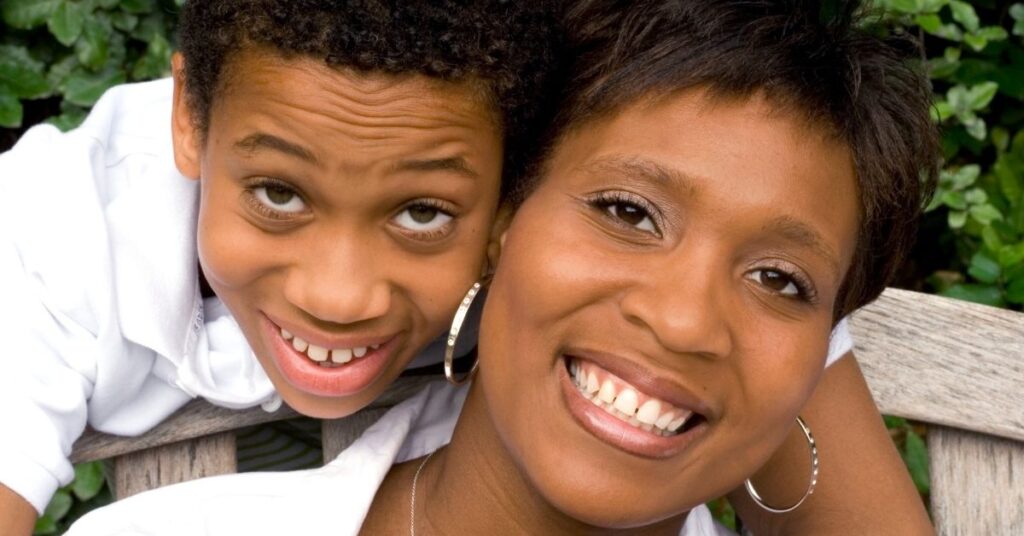When you have an autistic child, you have tough days. It’s hard with all of the appointments, behavior challenges and interactions with your child’s school. Yet, autism has its good points too, and it is one of the ways it makes your child who they are. So on those tough days, how can you have a more positive mindset about your child’s autism? I asked my fellow autism parent and teacher bloggers to weigh in on that question. See their responses below.
Gina Badalaty – Embracing Imperfect
“My faith in God is what helps me through the difficult parts of raising an autistic child with numerous behavioral and sensory issues. I know that no matter what, Zoe is fearfully and wonderfully made by our Creator, and that she has a purpose. Some of that purpose has been to get me on track to better help my family. Both my kids have lots of sensitivities, but we did not know that until we struggled to solve some of Zoe’s challenges when she was little. Realizing that God has blessed us with this child makes me more hopeful that we can surpass any challenge.
And it makes our time together more precious, as I become more patient. That reflects back to make her more joyful AND peaceful as well.”
Chris Bonnello – Autistic Not Weird
“I often tell autistic young people: ‘if you’re human, you have strengths. That’s the rule.’ And in my experience I do mean this for every human, regardless of complex neurology or challenges. Life is better, for us and for autistic children, when these strengths are focused on and valued and more than the negatives. There’s a subtle but important difference between ‘my child struggles so much, but they’re awesome’ and ‘my child is awesome, even though they struggle so much.’ It’s entirely possible to define an autistic child by their strengths without ignoring or trivializing their challenges – and honestly, it’s the approach I’ve seen do the most good.
Beyond this, it’s worth remembering a few very important facts:
1) Your child has done nothing to deserve anyone, anywhere, in any setting, thinking about them negatively.
2) Despite this, the world keeps trying to tell us that autism is a bad thing, and the world keeps believing it. (Autistic advocates are doing our best to change this though.)
3) Autistic children’s self-perception is usually defined in part by the attitudes of those around them. The more positive the adults in the lives feel about them- not just parents, but teachers, relatives and the world in general- the more positive they usually are about themselves.
Add these three facts together and you see the importance of allowing autistic children to visibly see people being positive about them, their personality, their strengths and their autistic characteristics.”

Jeannette – Autism Mumma
“I think my best piece of advice to anyone wanting to adopt a more positive approach is:
To remember that they are not alone, to accept any help and support that may be offered (even if it’s not taken up for a while), whether that’s in the form of a coffee, a reach out over social media or a virtual or real time group.
To remember that there is no ‘one label fits all’ when it comes to autism, to appreciate your child or young adult for the individual they are. For example, my two teens have autism, they both have similar traits sensory-wise, but they are also extremely individual; and I am so proud of what they have achieved.
Speaking of achievements, remember and embrace achievements, however they may seem to others, they are massive for your family. There will be times when there will be tears, whether they be scared/angry at the system, etc., but also remember to smile, smiles are contagious. Focus on the positives and remember them.
Finding an educational setting that is right for your very individual child is a must; remember that what someone in local authority suggests might not suit your circumstances; trust your instincts and keep pushing for what you believe in. Instincts also play a part with health professionals too; you know your child best.
And you, as a parent. Find an interest that when needed can take your mind away from over-worrying. Whether it be a sport or an activity. The best thing I ever did for my mental health was to join a crochet group, even if my nerves were over-thinking that no-one would want me there, I know, silly! But the counting of the stitches and realizing that something quite lovely comes from a ball of yarn and a hook is amazing.
Above all, remain positive.” (Want to know more? Check out this blog post from Jeannette.)
Lynne – AwesomismMom.com
“My advice to parents about having a more positive mindset after their child is diagnosed with autism… Is to understand that each and every one of us have our limitations. If you look at autism as a lifestyle, where you understand what the positives and negatives of your child are, it makes it easier.
Try very hard to focus on the positives, if your child is extremely creative then approach their life from a creative viewpoint.
Life in general has its ups and downs, trials and tribulations. The more positive that you focus in general, the easier it is for both you and your child.
I try very hard to support all the things that make Peyton happier. I find that when he feels positivity from me and the rest of his family and friends, he is a lot more excited to try new things.
Always remember autism is a spectrum, what your child is able to do doesn’t mean that other autistic kids are able to do.
Look at your child individually and work with your child it really does help with a positive Outcome. I’ve told Peyton since he was young. . . he has awesomism not autism because he’s the unique and awesome one!!”
Jill Powell – Walking with Drake
“Keeping a positive mindset can be difficult if you have a child with many behavior needs. However, for me, it has always been about perspective. I choose to focus on the positives of any situation. Did Drake communicate his needs? Was he able to self-regulate? Was he able to turn his day around? Any positive I can pull out of the hat, I do.
I chose to embrace autism early on. It truly is a choice we have to make. Embracing Drake’s different neurology closed the door on comparisons, jealousies and the whole ‘what I imagined’ theory.
Remember, the beginning is the hardest for many. Surround yourself with people who focus on the positives. Misery loves company, but positivity truly thrives when you commiserate with those who choose to be happy…no matter the circumstances.”

Jessica Ronne – Jess + the Mess
“I can only speak into my journey, which includes profound disabilities and autism (and a son who will require total care for the rest of his life), but what has been helpful for me is a change in attitude. Instead of viewing my life through a ‘why me?’ or ‘this is so unfair,’ I have reframed my thought process, which now involves seeing my care for Luke as holy work. There is no greater work on earth than caring for someone who cannot care for themselves and literally needs the grace and mercy and love of others for their very livelihood. I had a friend make a sign that says, ‘this is holy work,’ which now hangs in Lucas’s bedroom.”
Alicia Trautwein – The Mom Kind
“When I first received our children’s autism diagnosis, it was a lot to process. Here I was, a mom of three autistic children with confirmed diagnoses within just a year. The amount of negative information was overwhelming and what was positive seemed almost fake. I decided that my view on autism had to be different than that. Instead of focusing on what everyone else saw, I started to focus on what my children saw. It was then that I realized all the small moments that are so important that most parents fail to notice. Celebrating these little milestones for our children taught me to continue having a positive mindset about our children being autistic. We still have our struggles, but those struggles are what make those little moments that much more important!”
Carrie Cariello – Carrie Cariello: Exploring the Colorful World of Autism
“Last night I yelled at my son Jack.
It was nearly 11:00, and he had been pacing and circling the room for nearly three hours.
I listened to him mumble and talk to himself and I felt a surge of annoyance.
You see, Jack has autism. He paces to calm his body after a long day. He talks to himself as a way to sort out the thoughts racing through his brain like so many trains on a spiderweb of tracks.
Even as I was yelling, I was sorry.
He did what he always does when I yell.
He hung his head, and walked away sadly. He climbed the stairs and closed his bedroom door.
Hearing the door shut, I felt a pit in my stomach. This pit is familiar. I am no stranger to the way it lodges just beneath my sternum and creates its own kind of ache.
I ache for him.
I ache for who he is and what he has.
He has autism. It is not his fault. He did not choose it—he didn’t choose the trains or the pacing.
At the same time, I ache for who I should be, as opposed to who I am.
I should be patient. I should be calm.
Instead, I am messy and ordinary and scared.
I yell because I am tired.
I yell because I am unsure.
I yell because I am not always my best self.
In times like this, when the pit in my stomach looms large and the pacing is more than I can bear, I remind myself I cannot change the circumstances.
I cannot change the circumstance of autism, and regulation, and brain-train thoughts at racing speed. These are the broader brushstrokes of our life’s tapestry.
Yet when I look closely at the colorful mosaic, I see every hue all at once—brilliant orange, tender green, fiery red.
I cannot change the bigger picture, it’s true.
But the details are mine to alter.
I can take big breaths—in through the nose, and out through the mouth.
I can soothe my special son when his body and mind are out of sync.
I can remember autism is what he has, not who he is.
I can only try, and try again.
I am trying.
Jack, buddy. I am trying.”
What is your advice?
On my journey of autism with my son J, we have certainly had our ups and downs. Challenges and rewards. Yet, I try to remind myself that he is precious, and that autism is only one part of him. Focusing on his strengths puts us both in a more positive mindset.
Do you have advice for other parents on how to adjust to a more positive mindset when things are tough with your child from autism or when you are just frustrated with all things autism-related? Leave a comment so that we can encourage one another on this journey.








